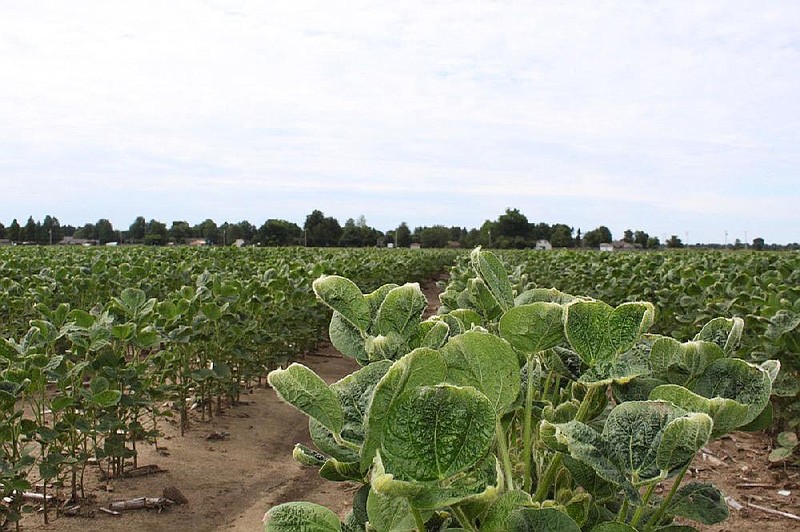The state Plant Board on Wednesday approved, without debate or discussion, a reduction in settlement offers sent to three farmers suspected of violating state pesticide laws on spraying dicamba.
The revised offers had been made by the Plant Board staff and then recommended unanimously on Aug. 21 by the board's pesticide committee.
The board's vote Wednesday didn't absolve farmers of wrongdoing but, instead, reflected an agreement among its 16 members with voting privileges that mitigating circumstances warranted a reduction in the possible fines.
The cases were:
• A reduction from $25,000 to $3,125 in the settlement offer sent Justin Blackburn of Paragould, over two suspectedegregious violations: spraying dicamba past last year's cutoff date and failing to provide spray-application records. Blackburn met with the Plant Board staff in an informal hearing in June to discuss the case. The records-keeping violation was dismissed after it was shown that Blackburn had the proper records but that the inspector in the case failed to ask for them. The staff cited Blackburn's cooperation in reducing a $12,500 offer for a post-ban spray violation to $3,125.
• A reduction from $12,500 to $3,125 in the settlement offer to Jamey Price of White Hall, over a suspected egregious violation of spraying dicamba past last year's cutoff. The staff also cited Price's cooperation in an informal hearing in August and said dicamba was sprayed only along the turnrows, not to an entire field of soybeans.
• A reduction from $25,000 to $1,562 in the settlement offer to John Wallace Jr. of Crawfordsville, over two suspectedegregious violations of spraying dicamba past the cutoff date in 2019. The Plant Board staff cited Wallace's cooperation in a hearing last month and said Wallace used a backpack sprayer for spot applications to pigweed in his fields rather than a spray rig to entire fields of soybeans.
All three offers now go to the farmers for their acceptance.
Some $1.4 million in 48 such offers have gone out this spring and summer to farmers for suspected egregious violations in 2018 and 2019. The cases involving Blackburn, Price and Wallace are the only ones to have gone this far through the Plant Board's hearing process.
Egregious violations are punishable by fines of up $25,000, although initial settlement offers by the staff are generally for about half of the total possible fines under the board's penalty matrix. Farmers can ask for informal hearings with the staff to discuss the cases. All offers must be accepted by the pesticide committee and full board before they go back to farmers.
Arkansas regulators have received more than 1,600 dicamba-related complaints since 2016; other soybean- and cotton-producing states have reported similar numbers.
The egregious violation most often cited in settlement offers this year is for spraying dicamba after the state's cutoff dates in 2018 and 2019.
Other violations eligible for the maximum $25,000 fines are spraying dicamba that results in drift onto another's property or crops; failure to keep spray records; failure to provide records upon request by an investigator; and lacking an applicator's license. Federal law also covers such violations.
In other business Wednesday, the board elected by acclamation Terry Fuller of Poplar Grove as chairman and Matthew Marsh of Little Rock as vice chairman. Fuller has been acting chairman since the resignation from the board earlier this year of Greg Hay of Conway. The board reelected Russell Bragg of Fort Smith as secretary, to serve until his term on the board expires in December.
